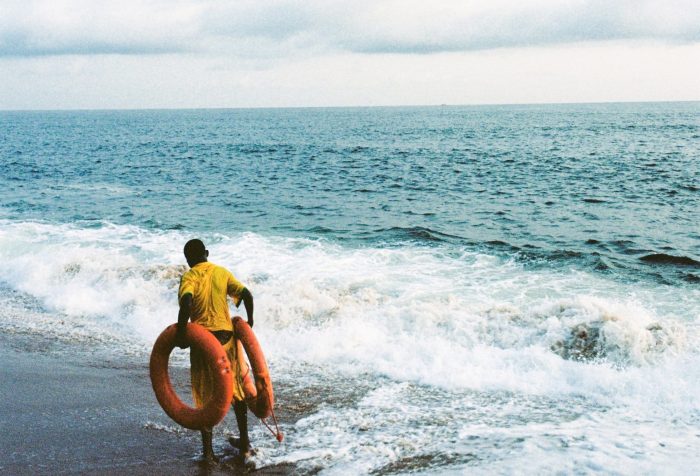Acceptance beyond borders:
The first human beings were nomads, migrating across great distances to find food, or to avoid otherwise harsh living conditions. This is the age-old way of humankind—moving to improve their quality of life.
Not much has changed in the millions of years since the first humans appeared on Earth.
However, immigration is still a controversial subject, easily sparking heated debate. There are numerous views on the matter, and many people are hugely divided in their opinions of the pluses and minuses of migration.
Problems arise when we make sweeping generalizations about particular groups of people and consequently become prejudiced against them. We assign labels. Some could be considered benevolent. For example, “Chinese people are good at math,” or, “Asian parents always want their kids to become either doctors or lawyers.” There are times when the labels are negative, and these are normally born out of limited information or experiences. For every negative generalization we make about a particular group of people, there may actually be many people in that same group who do not fit the mold that we have incorrectly fabricated in our minds.
In light of this, it is vital that we do not cast judgements, especially negative ones, based on a single still frame, without a clear understanding of the big picture, of a person’s story with all of its moving parts.
Keeping an open mind allows us to embrace everyone as fellow human beings rather than as this label or that.
We don’t realize it, but oftentimes, society at large, and even the immediate environment in which we live, imprint on us perceptions and views without us really being conscious of it. Some of these may actually be instilled at an early age, whether we choose to admit it to ourselves or not.
A decade ago, my immediate family and I were spending Christmas with some extended family in Florida. On Christmas Eve (even though we are not Christians) we decided to accompany my aunt and her family to church in the spirit of Christmas and family unity. On the way there, my father, driving slowly in a rental sedan carrying the five of us, halted at a red light and then—bang! Our car went spinning out of control, ramped over the median, crossed the other side of the four-lane road and ended up on the berm, barely missing an electrical pole that could easily have sliced the car, and my sister, in half.
I’m the eldest, and the most vociferous member of my family. I shot out of the car using some colorful expletives at the top of my lungs toward the driver. He spoke not a word of English. He looked dazed, confused, and shaky. He was young, drunk, and barefoot behind the wheel. I later learned from law enforcement that he was Mexican and possessed no driver’s license. In the midst of this traumatic experience, feelings of prejudice unsurprisingly creeped into my mind like wily weeds in a garden.
I had to check myself.
I had to remind myself that I didn’t know this guy’s story. Why was he drunk on Christmas Eve, and driving without a license? Who was I to judge this person and their circumstances?
There are many immigrants and children of immigrants who are exceptionally positive additions to the societies that they have joined.
Take for example, The Weeknd. He is a Canadian singer, songwriter, and record producer who is the son of Ethiopian immigrants Makkonen and Samra Tesfaye. His impressive career began in 2010 and now he is among the world’s best-selling musical artists with over 75 million records sold. And he is just one modern-day example. Famous immigrants who have added immense value to the countries and communities that they settled in are numerous, including John Muir (writer/naturalist of Scotland), Albert Einstein (German physicist), and Sergey Brin (co-founder of Google, inventor, and Engineer from Russia) to name a few who settled in the United States. And these are just famous ones. There are also everyday immigrants who do the right thing, pay their taxes, recycle their trash, and help the elderly cross the street.
If you really ponder on it, what are the borders we cross anyway? They are merely lines in the land that previous human beings delineated and decided were called one territory or another, based on fighting, resources, and politics.
There is a favorite story of mine about Swami Vishnudevananda—a holy man from India who came to the West in the 1950s. In 1983, he made a historic flight over the then Berlin Wall. Everyone thought he would be shot down, but he was only carrying bombs of flowers in his plane. He landed safely, and famously thereafter said:
“The moment that you put labels, then you think a person is not a human being…The Berlin Wall crossing was symbolic. The purpose was to break the man-made barriers that exist in the mind. That’s the real barrier.”
Labels don’t help—and sometimes, they harm our psyche.
In my home country of Trinidad and Tobago, we currently have an immigration “problem,” as some might call it.
In the last 10 to 15 years or so, there has been a consistent influx of Venezuelan migrants—some legal, most illegal—by boat. The collapse of their economy means resident Venezuelans do not have access to everyday necessities, such as toilet paper, milk, and flour. As a result, poverty and violent crime is rampant. Naturally, these people have fled to other countries where living conditions are better. If we had the misfortune of living in Venezuela during these difficult times, what would we do? Likely the same: migrate.
Some Trinidadians now blame the Venezuelan immigrants for “taking their jobs.” The Venezuelans are getting jobs in construction, in food service, as domestic workers, and in offices if they can speak fluent English. They work incredibly hard. They know what it is to suffer and how precious income is, so they give their jobs their complete and utter dedication. I have seen this firsthand.
Trinidadians, some of whom suffer from a piss-poor work ethic, are sidelined for these more assiduous workers. Venezuelan immigrants have the potential to vastly improve the social fabric of Trinidad and Tobago civilization in the years to come, if only because of their stellar attitude toward productivity. Therefore, with open arms and extended hands, we should, to the best of our ability, accept immigrants who may be seeking a better way of life, especially in situations where their safety and well-being have been threatened.
But acceptance works both ways!
Immigrants themselves have a responsibility to accept the societies they join.
If we move to a different place, we must, to some extent at least, integrate and comply with the rules and laws that govern that place. Moving to a different place may mean that we have to learn a new language and culture, as well as respect the indigenous religion and people. For example, the Venezuelans, in order to flourish, must learn Trinidad’s main spoken language, English, or at least Spanglish, in order to get by.
Immigrants also have a responsibility to their offspring. When first generation children are born and grow up in the new society, they become citizens of that place: they become Trinidadians, English or French. Parents of these first generations must expect—even if they don’t like it—that their children may fall in love with locals. This necessitates acceptance.
When I was at university in the United Kingdom, I remember that my Indian friends (all first-generation English citizens) were explicitly told by their parents that they must marry Indian partners—or else. These young people were more English than they were Indian, even if they spoke their parents’ native Indian language or practised their religion. Why should they be forced to marry people from their parents’ birthplace? Is that fair to those children? They have integrated and accepted their new culture and society.
Sometimes this narrow-minded approach to migration extends through generations. I see it in my home country with the Arab population, many whom still insist that their children marry, “within the community.” And these are second and third generation born-and-bred Trinidadians. And while there are many merits to marrying a partner with a similar culture and background, it is myopic to expect to migrate to a new country and have all future generations remain “purebred.”
Borders are just man-made boundaries, while human beings are all sparks of the divine.
We all equally inhabit planet Earth. We may differ in how we look, what language we speak, how we dress, what we eat, and what we believe in, but our differences are what make travelling and experiencing different cultures so beautiful and fascinating.
Peaceful coexistence amongst all people is achievable through acceptance beyond borders.


 Share on bsky
Share on bsky





Read 4 comments and reply